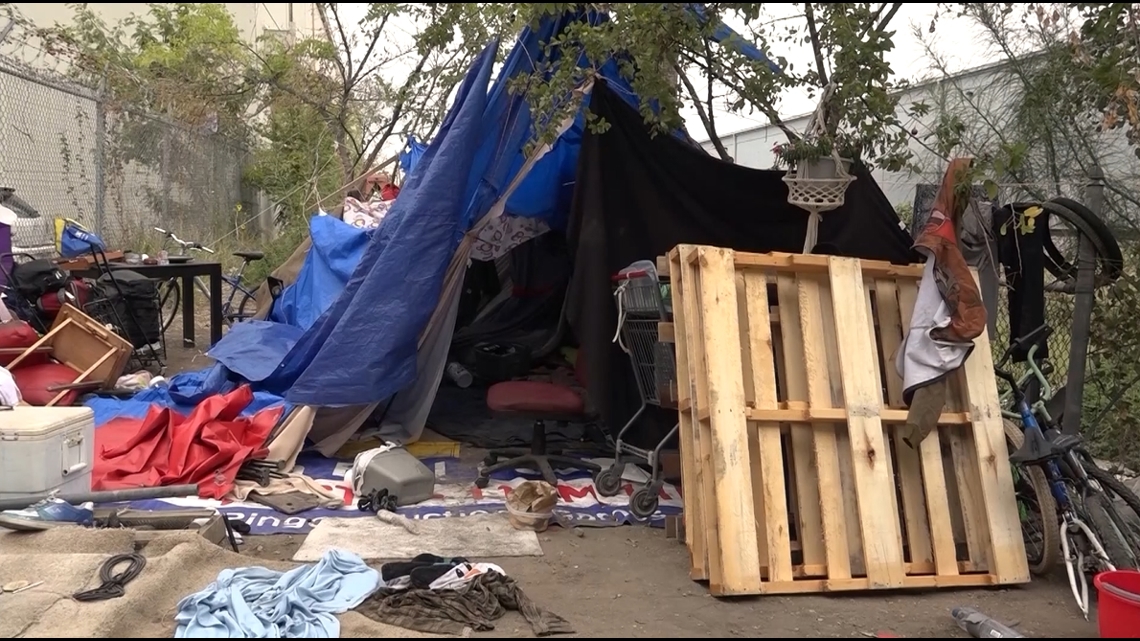
The order shifts the focus from “Housing First” solutions to more enforcement-heavy responses such as involuntarily committing people to long-term care facilities.
SAN ANTONIO — President Donald Trump’s executive order calling for the crack down on homelessness has sparked concern among advocates nationwide, including San Antonio where a coalition of groups remains committed to “Housing First” models amid the uncertainty of enforcement-based solutions outlined by the White House.
Christian Assistance Ministry (CAM) President and CEO Dawn White-Fosdick pointed out Trump’s new homelessness directive unfairly characterizes homeless men and women.
“The way it’s framed is fairly negative, it sort of criminalizes a lot of people who are struggling with mental health issues and aren’t choosing to be on the streets, but there’s no place for them to go,” White-Fosdick said.
White-Fosdick noted CAM is currently moving around 30–40 people off the streets each month, but fears progress will slow with funding cuts unless more resources arrive.
Her comments come in response to the White House’s executive order issued on July 24. The action’s titled “Ending Crime and Disorder on America’s Streets,” steers federal policy away from “Housing First” models, which studies have proven effective in reducing homelessness, in favor of tougher enforcement.
Such enforcement entails using a wide user of involuntary civil commitment and pressure on cities to clear encampments and enforce bans on urban camping and public drug use. The order also signals that federal grants should favor jurisdictions that emphasize enforcement, and it discourages funding for harm-reduction programs.
The executive order instructs agencies such as the Department of Justice, Department of Housing and Urban Development and Department of Health and Human Services to support state and local efforts to institutionalize some unsheltered people with serious mental illness or substance use disorders and to back crackdowns on encampments.
Civil-rights and homelessness organizations argue the order criminalizes homelessness and risks reviving a mid-20th-century model of long-term institutionalization without adequate due-process protections or treatment capacity.
Judge Oscar Kazen, who presides over Bexar County Probate Court 1, cautions that civil commitment isn’t a cure-all and must be used logically.
“Simply because you’re mentally ill or homeless doesn’t mean you need to be warehoused,” Kazen said. “What it means is that we need to address the problem at its source.”
The Alliance to House Everyone, which encompasses more than 70 organizations, met on Wednesday to discuss the executive order and potential impacts on the unhoused population in San Antonio and surrounding communities.
Katie Wilson, executive director of Close to Home, said the group will push to keep people-first practices front and center with an emphasis on humanizing those without traditional places to call home.
“As we figure out what the executive order will mean, we have to continue to address homelessness with a focus on people,” Wilson said. “It’s not fair to frame it solely as a public-safety issue.”
The order arrived amid record-high homelessness: HUD’s latest nationwide count found about 771,000 people were homeless on a single night in January 2024, representing an 18% increase from 2023. Advocates and researchers cite soaring rents and too little housing as primary drivers, even as veteran homelessness continues a yearslong decline.
More than 3,600 individuals were experiencing homelessness in Bexar County, according to the Point-in-Time Count conducted in January by Close to Home. This data compares to over 3,300 people counted in 2024.
